What is a microbrewery?
A microbrewery is a facility that brews beer, just like a traditional brewery, but on a much smaller scale. These businesses typically sell locally, not nationwide like the big-name breweries.
- Quantity: The general definition of a microbrewery produces no more than 15,000 barrels of beer per year.
- Batch size: Microbreweries typically brew on a small scale.
- Type of brewing: The beers brewed in microbreweries often have seasonal or themed flavors. Brewers may try a variety of methods to brew a very unique beer. They may focus on a specific style or have one signature beer.
- Limited distribution: Most microbreweries do not distribute their beer on a large scale, or even at all.
- Taxes: Microbreweries typically face lower taxes than larger breweries.
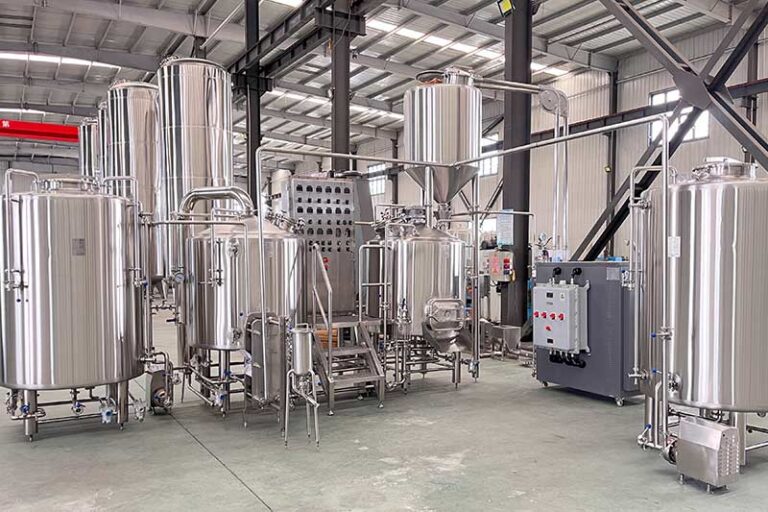
Process of Starting a Microbrewery
Micro/Commercial Brewery Systems
Micro/Commercial Brewery Systems use a wort keg, lauter tun, and kettle/whirlpool to start the process. These three large micro-brewing equipment can be used with smaller equipment such as fermenters and energy equipment, as well as other accessories such as centrifuges, pasteurizers, canning lines, etc. They are designed for large batches of beer (7-barrel brewing systems or more), while other systems take up less space but are not as flexible in terms of batch size.
Brewhouse Equipment
Brewhouse Equipment is similar to brewery systems, but on a much smaller scale; they are typically used by small businesses such as bars or restaurants that only serve home-brewed beer (brewery capacity is less than 7 barrels). This type of system includes all four major components (wort keg, lauter tun, kettle, and fermenter), but does not include pumps or heat exchangers for cooling the hot wort during fermentation – these parts must be purchased separately if needed.
Other Equipment Considerations
Microbrewery Equipment Types
Two-Vessel Systems
Three-Vessel Systems
Four-Vessel Systems
Brewery Essential Equipment
No matter which configuration you choose, there are four essential pieces of equipment needed to set up a successful brewery.
- Mash tun: The wort vat is the starting point of the beer brewing process. It is used to mix crushed grains with hot water to form wort, which is then separated into wort and lees.
- Filtration Tank: The filtration tank is used to separate the wort from the lees. This process, known as filtration, involves draining the wort through a false bottom while rinsing the leaves with hot water to extract as much sugar as possible.
- Boiling Kettle: In the boiling kettle, the wort is heated and boiled to sanitize it and extract flavor from the hops. This stage of the brewing process is critical to developing the flavors and aromas needed for the finished beer.
- Heat Exchanger: A heat exchanger is used to rapidly cool the wort after boiling, which is essential to prevent off flavors and promote proper yeast activity during fermentation.
- Fermenters: Fermenters, also known as fermenters or single tanks, are where cooled wort is mixed with yeast to begin fermentation. These tanks come in a variety of sizes and materials, the most common of which is stainless steel.
- PUMPS AND PIPING: Efficient pumps and piping are essential for transferring liquids between vessels during the brewing process. Investing in high-quality pumps and well-designed piping systems will ensure smooth operation and reduce the risk of contamination.

Microbrewery Setup Costs
Setting up a microbrewery can require a significant capital investment, depending on factors such as the size of the operation, the quality of the equipment, and the level of automation. Typically, microbreweries cost between $100,000 and $1 million to set up. Keep in mind, however, that there are ongoing costs to consider, such as maintenance, raw materials, and labor.
First and foremost, the size of the brewery plays a crucial role in determining the total cost. Generally, larger systems require a higher investment, but they can also increase your production capacity. Therefore, it is crucial to find a balance between your budget and your production goals.
Next, the quality of the equipment is an important factor to consider. While investing in high-quality equipment may seem expensive upfront, it usually leads to more reliable and consistent brewing results. In addition, it will save you money on maintenance and replacement costs in the long run.
Next, the level of automation you choose can significantly impact the cost of your brewery. While basic control systems are more affordable, advanced automation systems can be expensive. However, these systems can improve efficiency, consistency, and ease of operation, which may offset the initial investment over time.
Finally, don’t forget about ongoing costs, as they are an important aspect of a microbrewery’s budget. Regular maintenance, purchasing raw materials, and hiring skilled labor are all costs you need to consider when planning your brewery setup.
Tips for setting up a microbrewery
What type of brewing kit does a microbrewery need?
Provide your brewery with enough room to expand
How much space do I need for my microbrewery?
Proper craft beer market analysis
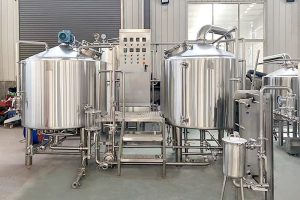
Beer Brewery Equipment Manufacturer The brewing supplies provided by Micet Craft can support your brewing needs from small batches of micro beer brewing equipment to
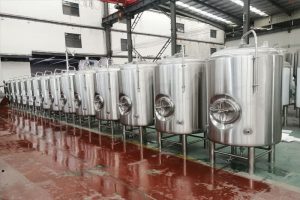
Professional bright Beer tank manufacturer from China The bright tank is a vessel for storing and carbonated beer, it is also called the brite tank.
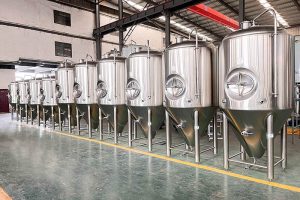
China brewing equipment manufacturer and suppliers Micet Craft has cooperated with breweries in many countries around the world to provide them with brewing equipment. We
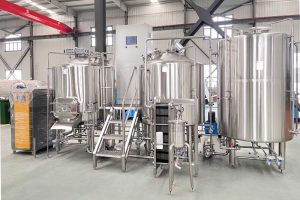
Best brewhouse equipment manufacturer from china Brewing good beer requires brewhouse equipment. Whether you are brewing beer for home, business or brewery, Micet Craft can
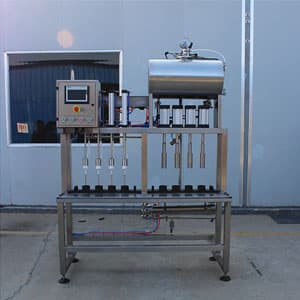
Professional beer filling machine manufacturer Beer filling machine is the core equipment of the beer production line. Our beer filling system uses stainless steel as

Best beer brewing system manufacturer from china Micet Craft is a professional beer brewing system manufacturer in China. We mainly produce high-end customized turnkey brewing
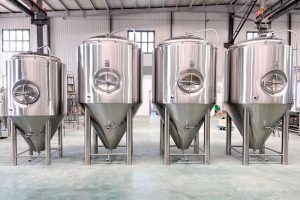
Fermentation Tanks The fermentation tank is where the beer carry out the fermentation process, it provides a place suitable for life activities and metabolism for

